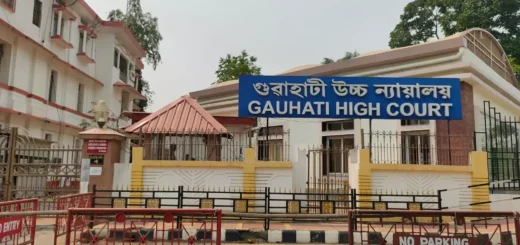Attorney General R Venkataramani stated that the Arbitration Bar of India will set a global standard.

India’s Arbitration Bar is set to become a global leader, according to Attorney General R Venkataramani. He emphasized the need for more centers worldwide to promote arbitration. “The Arbitration Bar of India will set a standard for global arbitration. The world requires more such centers. A well-organized global bar can create significant impact, and India can take the lead,” he stated. The AG spoke on “Institutional Arbitration in India, What does the future hold?” at a JSA event welcoming the leadership of the ICC’s International Court of Arbitration. He also mentioned that a white paper outlining India’s contributions to global arbitration is being prepared, expected to be released in February 2025. He stressed the importance of legal professionals engaging in discussions to further this cause. “In a few months, we hope to present a white paper on India’s role in the global arbitration landscape,” he added.
Following the AG’s speech, a panel discussion took place, moderated by Amar Gupta from JSA. The panel included Claudia Salomon, President of the ICC International Court of Arbitration; Senior Advocate Ritin Rai; Naresh Arora, VP of Legal Operations at ATC; and Swee Yen Koh, Senior Counsel and Partner at Wong Partnership. When asked about the ICC’s plans for India, Claudia Salomon remarked, “India is a top priority for ICC arbitration, not just due to the size of your economy but also because of the cross-border investments and domestic investments occurring here.” She noted that ICC arbitration is often the preferred option, even when both parties are Indian, and mentioned that ICC operates in around 120 cities globally.
Rai discussed the lack of special recognition for institutional arbitration in the Arbitration and Conciliation Act of 1996. He pointed out that the Act does not differentiate between types of arbitration, despite the clear advantages of institutional arbitration, such as defined arbitrators, costs, and timelines. This raises questions about why it is not more acknowledged in the Act.
He mentioned that there are traditional views in India that see institutional arbitration as costlier and offering less control to the parties compared to ad-hoc arbitration. Rai noted that a recent draft bill from the government acknowledges the significant role of institutions in arbitration and suggests an amendment to include emergency arbitrations. However, he emphasized that the draft bill requires more clarity, particularly regarding the changes to Section 9, which addresses emergency arbitration. He expressed concern that many recommendations from the expert committee were overlooked, stating that while some changes in the draft bill are positive, others warrant caution.
Swee Yen Koh and Arora pointed out the benefits of institutional arbitration compared to ad-hoc arbitration, emphasizing that it can save money for parties by resolving disputes more quickly. Former Supreme Court judges, Justices (retd) AK Sikri and Ajay Rastogi, also shared their insights at the event. Justice Sikri mentioned that Section 11 petitions, which request the Court to appoint arbitrators, have become common in ad-hoc arbitrations because parties often struggle to agree on a panel. He noted, “The main issue with ad-hoc arbitration is that forming the tribunal takes time, leading to delays.” He added that institutional arbitration is generally more cost-effective. “While we can outline procedures for ad-hoc arbitrations, they are not as detailed as institutional rules, which include necessary checks and balances,” he explained.
Justice Rastogi concurred that institutional arbitration is superior to ad-hoc arbitration. “From my experience as an arbitrator over the past year, I find institutional arbitration to be much better,” he stated. However, he recommended limiting the number of arbitrations an arbitrator can handle at once to improve efficiency. Justice Rastogi also called for the government to establish oversight committees to review decisions made by officials regarding dispute resolution, rather than relying solely on arbitration or litigation. The event wrapped up with AG Venkataramani honoring Salomon, the first woman to serve as President of the ICC International Court of Arbitration in its century-long history.









